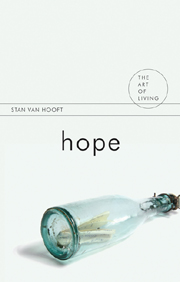Epilogue: the virtue of hope
Summary
Throughout this book, I have used Aristotle's framework for understanding virtues to make two suggestions. The first was that hope represented a set of attitudes, emotions and motivations that lay in a median position between forms of excess and forms of deficiency. The extremes that virtuous hope avoids are the excesses of presumption and the deficiencies of despair and resignation, while the non-virtuous extremes of hopefulness were naivety and fantasy at the excessive end of the spectrum, and cynicism at the deficient end. People will fail to display the virtue of hope if they lack the confidence and hopefulness to embark on projects whose success cannot be guaranteed. This would be resignation and, in even more acute cases, despair. And people will fail to display the virtue of hopefulness if they lack the conviction that their projects are worth the effort and risk involved in being committed to them. The forms of excess are somewhat more various and complex. We have seen that one form of excess of hope is presumption, which involves hoping for more than is possible, expecting others to provide it, and making no commitment to the action that hope requires. Similarly, the person who is excessive in the sphere of hopefulness trusts in others and expects good things in the future to a naive degree. Such a person neither sees risks nor anticipates problems. The line between such excessive optimism and living a life of fantasy could not be easily drawn.
- Type
- Chapter
- Information
- Hope , pp. 136 - 140Publisher: Acumen PublishingPrint publication year: 2011



